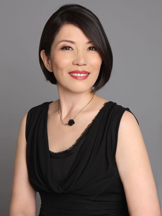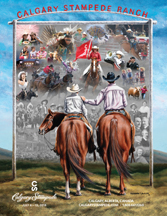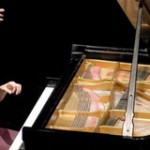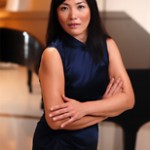- News Front Page
- Uncategorized
- Headline News
- Filipino Calgarian
- Business
- Pinoy Stories
- Community News
- Publisher's Note
- The Main Ingredient
- Views and Opinions
- Maikling Kwento
- Alberta News
- OFW – Month
- Travel News
- Health and Lifestyle
- Pinoy Toons
- Pinoy Spirit
- Entertainment
- The Philippine Lawyer
- Horoscope
- Greetings
- About Us
- Greetings From the Prime Minister
- Greetings from the President of the Philippines
- Greetings from the Premier of Alberta
- Greetings from the Mayor of Calgary
- Advertise With Us
- Disclaimer
- Subscription
Publisher's Note
- Publisher’s Note
 It was 22 years ago when I arrived in Canada and chose Calgary, Alberta to be my home. Leaving my family and friends behind, it was a new adventure for me to be in a new country without knowing anyone. That was the time I looked for a Filipino community paper and never found any, [...]
It was 22 years ago when I arrived in Canada and chose Calgary, Alberta to be my home. Leaving my family and friends behind, it was a new adventure for me to be in a new country without knowing anyone. That was the time I looked for a Filipino community paper and never found any, [...]
Visitors to Pinoytimes
Page added on March 29, 2013
Cecile Licad:A Pianistʼs Pianist

by Ida Beltran-Lucila
She is showered with glowing accolades: a pianistʼs pianist by The New Yorker; her artistry is a blend of daring musical instinct and superb training; and in possession of enormous virtuosity with great potential for poetic imagination. In my days as an artist, then subsequently director at the Cultural Center of the Philippines, the whole theater will just buzz with excitement whenever sheʼs in the building, backstage or onstage. Witnessing her performance, would prove a truly unforgettable and touching experience.
Named after the patron saint of music, Cecile Licad started playing the piano at age 3 under her mother Rosario, a professional pianist and teacher. She started reading notes at age 5, performed with the University of the Eastʼs symphony at 6, and at age 7, under the tutelage of Rosario Picazo, made her debut as soloist with the Philharmonic Orchestra of the Philippines. At age 11, Cecile flew to the USA for an audition at the Curtis Institute of Music in Philadelphia. It was in this circumstance that Imelda Marcos became the sponsor of her flourishing career. It was then 1972 and the Philippines was under martial law, when her family requested permission to leave for the United States. First Lady Imelda Marcos granted their request and named Cecile First Piano Scholar of the Philippines Young Artists’ Foundation, which sponsored her eight years of study at the Curtis Institute in Philadelphia. In later years, Imelda would gift her with a Steinway grand piano.
At the Curtis Institute, Cecile was mentored by the three of the greatest performers and pedagogues: Rudolf Serkin, Seymour Lipkin and Mieczyslaw Horszowski. In 1981, she won the prestigious Leventritt award (one of the youngest to do so), and marked her debut with the New York Philharmonic, the following year. The award, which came with a guaranteed 3-year international concert bookings and recordings, was her main ticket to global fame. She remarks, “I was very grateful for it, but it also made my life difficult, because of the pressure… suddenly I was doing 70 concerts a year.”
Cecile has since collaborated with: Buffalo Philharmonic; Tupelo Symphony; Germanyʼs Wurtemburg Philharmonic, and Freiburg Orchestra; Seattle Symphony; Chicago Symphony; Boston Symphony; Philadelphia Orchestra; New York Philharmonic; National Symphony; Cleveland Orchestra; Los Angeles Philharmonic; the London Symphony; London Philharmonic; Bayerisches Rundfunk Orchestra; Orchestre de la Suisse Romande; the Moscow State Academy Symphony; the Hong Kong Philharmonic; New Japan Philharmonic; Tokyoʼs NHK Symphony; among others.
Her list of concert venues and engagements reads like a listing of the most prestigious musical events in the globe: Lincoln Center; Orchestra Hall in Chicago; the Kennedy Center; Apollo Theater in New York; as soloist in the Steinway Piano Sesquicentennial Celebration at Carnegie Hall; the International Music Festival of Seattle; Mostly Mozart Festival (in both New York and Arts and CultureTokyo); the Santa Fe Chamber Music Festival; La Jolla Chamber Music ; Eastern Music Festival; the Great Mountains Music Festival in Korea; to name some. Her recordings, on the other hand, span the labels: Music Masters; Naxos; Sony Classical; and Angel/EMI. The release of her Sony Classical Chopinʼs Piano Concerto No. 2 and Saint-Saensʼ Piano Concerto No. 2, with Andre Previn conducting the London Philharmonic Orchestra was awarded the Grand Prix du Disque Frederic Chopin.
Known for her extraordinary range of touch, hypersensitivity to dynamics and obsession with perfection, Cecileʼs vast repertoire as an orchestral soloist spans the classical works of Mozart, Beethoven, the romantic pieces of Brahms, Chopin, Tchaikovsky, Schumann, Rachmaninoff, and the 20th century compositions of masters Debussy, Ravel, Shostakovich, Prokofiev, and Bartok.
Cecile and her performances have been described as: Licadʼs performance was one of the highlights of the season. Daring, imaginative, and impeccably played, this was quite simply a spectacular performance by a top notch artist. (Arlene Bachanov, Daily Telegram); Licad plays with a character and commitment entirely her own; a far cry from todayʼs more fashionable austerity and circumspection. (The Gramophone)
Undoubtedly, one of the most, if not the most, accomplished musician of our time, she has these to say about her art:
• A piece of music does not say anything. Itʼs just a bunch of notes. But if you look at the score, thereʼs something between those notes that you have to conquer. Otherwise, the music doesnʼt do anything, and it canʼt relate to anybody.
• You canʼt always aim for perfection in a live performance. Sometimes, things donʼt happen according to the plan. You have to go deep into yourself - into the unknown – and be in a place where youʼve never been. If you are well-prepared, you can discover something that enriches you forever.
• A great pianist is someone who has discipline, dedication, and has a unique relationship with the piano which has been developed since his/her training. What sets apart a great artist in this field, however are two things. The first is just an ability to approach the same piece of music over and over again as if learning it for the first time every time. The second is the creativity to have a vision before you even sit down at the piano, and then having the chops to execute that vision.
• I always consider myself a student and I never would see myself as a great master.
Memorable words from an equally memorable artist.
* (some quotes taken from Movimiento). For feedback, email [email protected] or go to http://thelucilaproject.blogspot.ca. see gallery_shortcode() in wp-includes/media.php
RELATED STORIES
LATEST HEADLINES
- ISKWELAHANG PILIPINO (IP) RONDALLA OF BOSTON WINS THE HEARTS OF CALGARIANS
- Pinay doctor joins Medicus Family Clinic and Pharmacy
- Multicultural Ethnic Media round table with Minister of Finance Joe Ceci together with Minister of Social Services Irfan Sabir
- Trans Mountain Pipeline keeps Canada working
- Facilitating travel to Canada while keeping Canadians safe
COMMUNITY NEWS
 A new way forward for some immigration application processing times
A new way forward for some immigration application processing times Calgary Stampede 2018 Poster
Calgary Stampede 2018 Poster Alberta celebrates first Philippine Heritage Month
Alberta celebrates first Philippine Heritage Month UPAAA Welcomes New Philippine Consul General
UPAAA Welcomes New Philippine Consul GeneralPINOY STORIES
 Duterte signs National ID System Act
Duterte signs National ID System Act- Holy Week practices in the Philippines
PINOY SPIRIT
HAVE YOUR SAY
Lorem ipsum dolor sit amet, consectetur adipiscing elit, dolor sit ipsum.PROMOTIONAL BLOCK
Lorem ipsum dolor sit amet, consectetur adipiscing elit, dolor sit ipsum.TRAVEL NEWS
PINOY TOONS
Tags
Archives




















